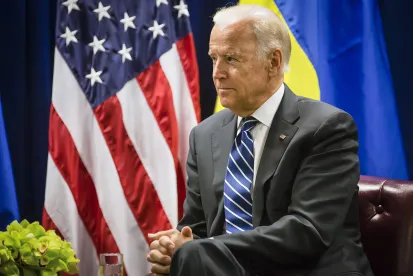Noncompete agreements, through which an employee promises not to compete with an employer during or after employment, have been a part of the marketplace for many years. While they must be supported by a legitimate business purpose and meet reasonableness requirements in terms of duration, geography and scope, noncompetes are permissible in most states.
As the new administration takes over, that may change, as Joe Biden has previously expressed that he believes noncompete agreements hurt workers. For example, in December 2019, he tweeted: "It's simple: companies should have to compete for workers just like they compete for customers. We should get rid of noncompete clauses and no-poaching agreements that do nothing but suppress wages." And the following is explicitly listed as an action item on the “joebiden.com” website:
Eliminate noncompete clauses and no-poaching agreements that hinder the ability of employees to seek higher wages, better benefits, and working conditions by changing employers.
This aversion to restrictions on employee movement is consistent with the Obama administration’s Department of Justice and Federal Trade Commission (FTC) guidance in October 2016 warning against agreements between companies not to poach each other’s employees.
President-elect Biden’s proclamations are no empty threat. First, restricting noncompetition agreements enjoys some bipartisan support. Therefore, even if the Senate remains under Republican control, there is the opportunity for legislative action. On the other hand, such efforts stalled under the Obama administration. Second, some believe that the FTC’s rulemaking authority to prohibit unfair or deceptive acts and unfair competition would allow regulatory elimination or diminishment of noncompete agreements.
This, of course, ignores the fact that noncompetes are contracts that are typically a matter of state concern, and that states have taken action over the last few years to restrain abuses. Moreover, while there are publicized examples of noncompetes that go too far, there are others that are supported by legitimate business concerns, such as the desire to protect confidential information and customer relationships. Also, well-written noncompetition agreements can provide a level of clarity and certainty, guiding the actions of the parties. A ban on such agreements will cause matters of importance to be fought in the more nebulous, and costly, trade secret arena.
While employers are waiting to see how this shakes out, it would be wise to reassess current agreements and business models that are overly dependent on noncompetition agreements. For example, it seems likely that the application of noncompete agreements to lower-level employees will be invalidated. In addition, given President-elect Biden’s reference to a trade secret exception, employers would be well-served to tie agreements to the need to protect specific trade secrets. In addition to fine-tuning noncompetition agreements, companies should also ensure that they have in place agreements reasonably prohibiting or restricting the solicitation of customers and employees, as these agreements may accomplish core objectives but survive a noncompete ban. Employers should also reexamine whether they have taken steps to protect their trade secrets---including clear agreements, training, and security precautions--- as the battleground may shift to trade secret law.




 />i
/>i


